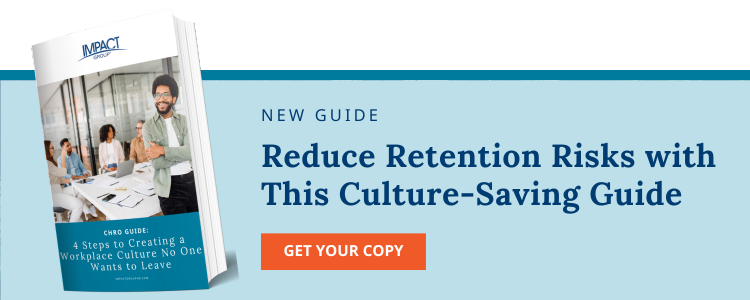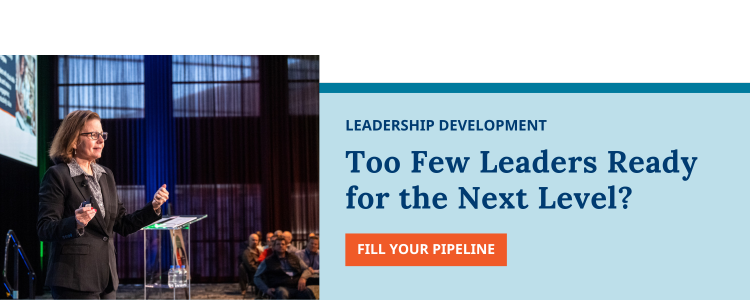Executive career coaches deliver a multitude of benefits. They have a higher impact on company culture than you may realize. A recent survey by HRExecutive interviewed 1,100 full-time employees. They found that of the employees who report being dissatisfied with their job, nearly 40% blamed company culture. Only pay and lack of recognition/growth opportunities rank as more important. This finding compounds with another survey by HRExecutive. It outlines that 62% of HR leaders are concerned about losing talent in 2024.
A vibrant, inclusive culture is integral to employee satisfaction and company health. Executives responsible for organizational health and talent development are realizing this more than ever. A positive culture leads to higher retention, productivity, and engagement. Find yourself pondering what the best avenue is to move the needle at your firm? Investing in executive career coaches is proven to make a measurable difference.
Transforming your company culture isn’t a simple endeavor. Your C-Suite may try – and fail – to achieve change on their own. For this reason, executive career coaches have become indispensable assets. They guide company-wide transformations and redefine company cultures for a burgeoning workforce.
Culture Keeps Employees – Changing it Requires C-Suite Stewardship
Company culture plays a key role in retention for a very simple reason. If people are happier in their work environment, they’re more likely to keep coming back. A negative company culture can become ingrained. However, with the right coaching, it can just as easily be extracted and replaced.
The challenge of changing cultures is that it necessitates stewardship from the very top. Executive career coaches, in that regard, empower C-Suite leaders. They outline how these leaders can foster environments where employee, and in turn company health, take center stage—cultivating honesty, transparency, and people-centricity.

3 Ways Your Company Culture Benefits from Executive Career Coaches
1. Align Values, Cultivate Engagement
The growing trend among employees is seeking workplaces whose values align with their own. The challenge with measuring a value system is that it goes together with company culture. Restructuring an embedded paradigm is a problem at numerous organizations and one that has become a growing priority for CHROs to address.
Executive career coaches take some of that weight off. They help leaders articulate and embody their company’s new or clearly defined values, cultivating an environment where employees can feel connected and engaged. Establishing executive career coaches for the C-Suite encourages continued practice of these values, leading to higher employee net promoter scores, referrals, and company loyalty.
Keep reading up on executive career coaches:
2. Develop Leadership, Facilitate Growth with Executive Career Coaches
The Institute for Corporate Productivity’s (i4cp) 2024 Priorities & Predictions report outlines the vital role of C-Suite executives in cultural renovation to achieve optimal levels across talent attraction, retention, and employee development.
This report reemphasizes a study by the National Association of Corporate Directors (NACD), which asserted that “Boards should set the expectation with management that regular assessments of culture will include qualitative and quantitative information and incorporate data from sources outside the organization.”
Leadership effectiveness, across both studies, ties with growth and also belies what many CHROs are calling their organizations’ “biggest vulnerability.” Executive career coaches bridge this gap, improving and sustaining optimal business performance and assisting CHROs in leadership development, change management, and succession management within the HR function.
3. Embolden Cultural Health, Drive Measurable Change
Another prediction from the i4cp 2024 report is that boards are going to increasingly expect HR to provide “hard measures” of organizational culture. Kevin Oakes, the CEO of i4cp, goes on to say that it will be “HR’s responsibility to define and produce core human capital and business metrics that are regularly tracked, such as unwanted attrition, employee net promoter score, referrals, hotline activity, productivity, inclusion, diversity, engagement and strength of employer brand.”
The challenge with these “hard measures” is upending long-established traditions and how to best handle those transitions. Oakes’ goal of revamping company culture is a means of “future-proofing” cultural health for sustainable growth, but measures brought about with a gentle hand from engaged C-Suite Executives are the solution for smoother transitions. Executive career coaches equip these leaders with the tools to focus on grounded metrics and employee values, allowing for targeted intervention and measurable improvements.
See Also: Transformational Coaching for Executives
Is Now the Right Time for Executive Career Coaches?
As CHROs, CPOs, and other HR leaders try to navigate the complexities of today’s corporate environment, executive career coaches offer a roadmap. They outline how a strategic integration of leadership development practices isn’t just beneficial but essential for “future-proofing” a company and its culture alike.

Incorporating insights from IMPACT Group’s executive programs can lead to transformational experiences that empower leaders to build self-awareness, develop a strategic approach, grow their EQ, and enhance their ability to motivate teams to drive transformational results. Through the process, leaders gain invaluable insight into their next-level leadership potential, enjoy enhanced success with their teams, bolster company culture, and experience heightened overall effectiveness.
This is achieved through dedicated coaching engagements with executive career coaches, a structured framework for coaching engagements, assessments, and a personalized action plan. To help your leaders unlock their full potential, reach out to us or learn more here.










